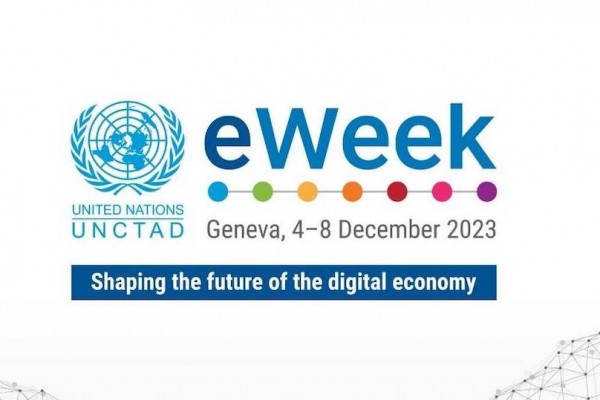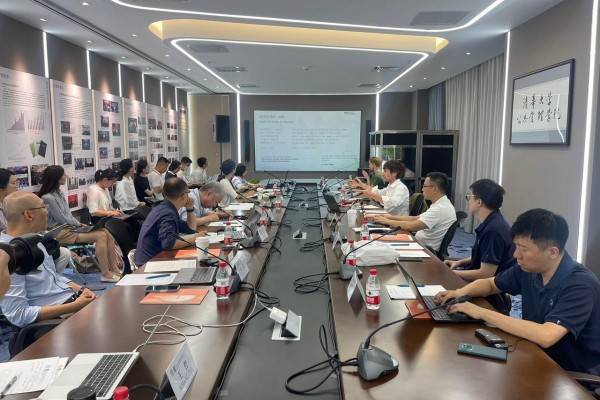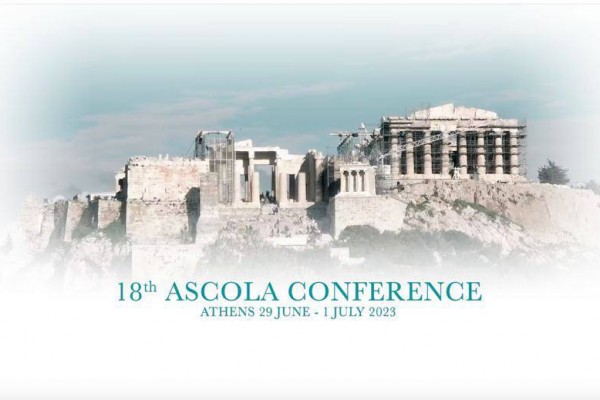At the conference on "Competition and Big Tech" held on March 21 in New Delhi the next stage of the "ecoantitrust" project, which is implemented by the BRICS Competition Law and Policy Centre together with the International Institute for Applied Systems Analysis (IIASA), was presented.
Andrey Tsyganov, Deputy Head of the Federal Antimonopoly Service (FAS) of Russia, moderated the session on "Ecological Approach to Competition Law in the New Economy."
The innovative approach to the ecosystem economy views digital ecosystems as similar in many ways to their natural counterparts. This approach uses analogies and methods from ecology and biology to formulate a new toolbox for regulators tasked with controlling the growing power of digital ecosystem businesses.
Alexey Ivanov, Director of the BRICS Competition Law & Policy Centre, noted that modern business models scarcely resemble industrial-era companies with clear organization and structure. For example, Alibaba founder Jack Ma, speaking about managing an IT corporation, called himself "a blind man riding on a blind tiger.” However, antitrust agencies still approach the regulation of new forms of business with old tools. This contradicts the adaptive nature of the digital economy, which is capable of avoiding these regulatory barriers established in this mechanistic manner. The anticompetitive behavior of digital ecosystems is viewed by antitrust authorities in different countries in a fragmented way, without taking into account the big picture, which makes regulation ineffective.
“There are two problems arising from this fragmented approach. The first is that competition authorities address basically wrong problems. They make decisions that do not lead to changes in the behavior of the digital ecosystem and positive social and economic effects. The second problem is that such "mechanistic" regulation sometimes creates perverse effects for the digital economy. Digital platforms and digital ecosystem organizers know how to circumvent these rules, maneuver and make it appear that they have solved a particular problem. But in reality, their market power only increases,"
emphasized Alexey Ivanov.
Ecoantitrust provides a holistic view of the problem and takes into account the flexible and dynamic nature of digital platforms. This method assumes that digital ecosystems evolve cyclically, going through all stages, from birth and development to amplification and externalization, when a closed ecosystem begins to suppress independent players. This is the stage where regulators most often intervene, trying to force the platform back to the previous stage of the cycle, that is, to become more open again. Instead, following the logic of the cycle, it is possible to let the platform go through the next stage of disintegration/reformatting and continue development already in a new status.
We must speak a common regulatory language
According to Ivanov, regulators must act in a coordinated manner. International cooperation on the climate agenda can serve as a positive example.
"When we talk about climate change, we agree that we need concerted action by all stakeholders to solve this problem. This issue cannot be solved at the national level; we need working mechanisms on an international scale. However, on economic issues there is more fragmentation than concerted action. To achieve common goals, we must speak a common regulatory language just as we established common ground on climate change and biodiversity."
Proceeding with the ecoantitrust, Elena Rovenskaya, Program director of IIASA, described how the model of complex adaptive systems (CAS) is used to draw an analogy between natural and digital ecosystems.
"CAS theory helps build a model of a multi-agent system in which players interact, make decisions in a non-centralized way, learn from each other and adopt the strategies of more successful agents. This process can lead to S-curve and tipping in the market."
During the discussion on the presented project, Ujjwal Kumar, Associate Director, CUTS International, noted that competition agencies can borrow ideas from ecoantitrust theory to develop antitrust tools.
Jia Kai, Associate Professor, University of Electronic Science and Technology of China (UESTC), emphasized the need to consider the work of algorithms in the environmental antitrust model. For example, China's Tencent, like most IT giants, consists of many smaller platforms, and each of them has its own algorithms, Jia Kai noted.
Jasper van den Boom, PhD Candidate, Tilburg Law School, offered some questions for reflection: Is the development model of digital platforms a cycle or a spiral? Who are the end-users and professional users of the platforms in this ecological thinking? How do we ensure that this idea of competition is not captured by those who are specialized in computation? If undertakings have a lot more resources than the regulators and potentially more convincing powers, could we also be convinced that something is a species that we want in our garden when really it is an invasive species or a problem? In other words, do we allow weeds to grow in the garden, believing their promises to turn into beautiful flowers in the spring?
Daria Kotova, Research Fellow, BRICS Competition Law and Policy Centre, presented the recent Russian marketplace Wildberries case and proposed to discuss how an ecological approach to regulation can equip agencies with ecosystem-deconstructing tools.
"The boundaries of competition law need to be broadened to include various forms of abuse along the (co)dependent relationships between complementors and system orchestrators,"
Daria Kotova noted.
The conference on "Competition and Big Tech" was jointly organized by the International BRICS Competition Law and Policy Centre, the Competition Commission of India (CCI) and the CUTS Institute for Regulation and Competition (CIRC) under the aegis of CUTS International (Consumer Unity & Trust Society), the oldest Indian academic center dedicated to consumer issues.



